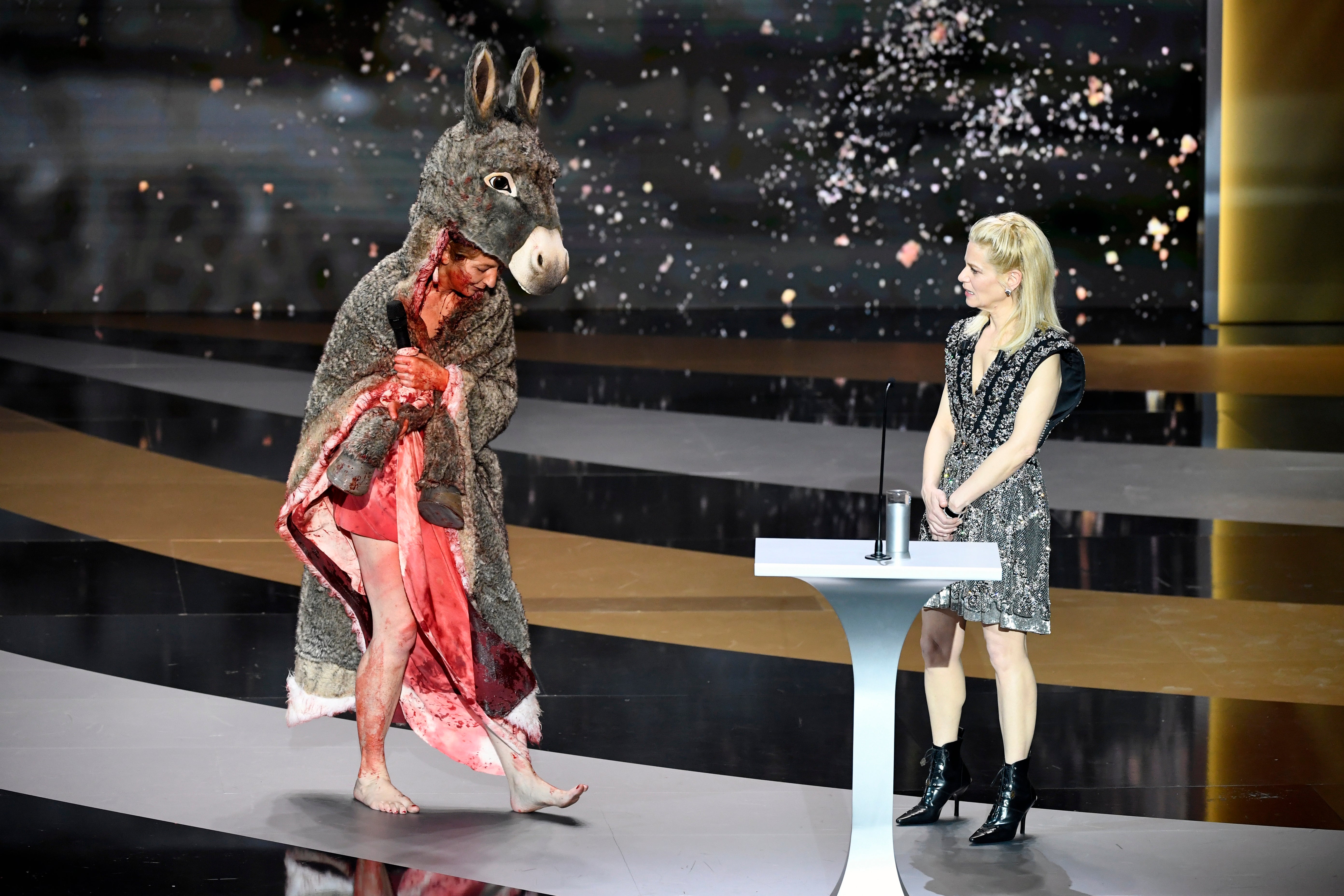French actor strips for culture during Cesar Awards ceremony
The awards ceremony for France’s equivalent of the Oscars included an eye-catching appeal for culture in the age of the coronavirus

Your support helps us to tell the story
From reproductive rights to climate change to Big Tech, The Independent is on the ground when the story is developing. Whether it's investigating the financials of Elon Musk's pro-Trump PAC or producing our latest documentary, 'The A Word', which shines a light on the American women fighting for reproductive rights, we know how important it is to parse out the facts from the messaging.
At such a critical moment in US history, we need reporters on the ground. Your donation allows us to keep sending journalists to speak to both sides of the story.
The Independent is trusted by Americans across the entire political spectrum. And unlike many other quality news outlets, we choose not to lock Americans out of our reporting and analysis with paywalls. We believe quality journalism should be available to everyone, paid for by those who can afford it.
Your support makes all the difference.The ceremony announcing the winners of this year’s Cesar Awards France’s equivalent of the Oscars included a loud cry for culture in the age of the coronavirus, with one actor stripping naked onstage to make a statement about the continued closure of cinemas and theaters.
Corinne Masiero came onstage Friday night to present the best costume award wearing a donkey suit and tampons as earrings.
“Is that too trash?” Masiero asked the socially distanced audience before removing the donkey costume to reveal what looked like a blood-soaked dress and announcing “I have a last one.”
Masiero, 57, the offbeat star of popular detective series "Capitaine Marleaus," then took off the dress and exposed messages written on her body. The words on her front read, “No culture, no future.” The message on her back was addressed to French Prime Minister Jean Castex: “Give us back art, Jean.”
The audience applauded, but some commenters on social media denounced what they said was a descent into vulgarity at the 46th Cesar Awards.
The #MeToo movement roused last year’s ceremony, where famed director Roman Polanski received best director award for “An Officer and a Spy” amid protests by women’s groups and some boos and walkouts.
Polanski, who did not attend the event, is wanted in the United States decades after being charged with raping a 13-year-old girl in 1977. He pleaded guilty to unlawful sexual intercourse with a minor but fled the U.S. In 2019, a woman accused Polanski of raping her in 1975 in his Swiss chalet when she was 18. Polanski denied the allegations.
Most of the political views expressed this year were about reviving France's dormant cultural scene. Part-time actors are currently occupying several theaters around France, including Paris’ famed Odeon Theater, to demand more government help.
As for the awards themselves, one film, “Adieu les Cons” ("Bye Bye Morons"), the madcap adventure of a dying hairdresser looking for the child she gave up at age15, scooped up seven awards, including best film and best director for Albert Dupontel. The best actor award went to Sami Bouajila for “Fils” ("Son") and Laure Calamy was chosen best actress for her performance in "“My Donkey, My Lover, and I.”
Jean-Pascal Zadi, who was named most promising actor for his role in “Tout simplement noir” ("Simply Black"), promoted equality in his thank you speech. Fourteen-year-old Fathia Youssouff, chosen most promising actress for “Mignonnes” ("Cuties"), told aspiring youth to follow their dreams.